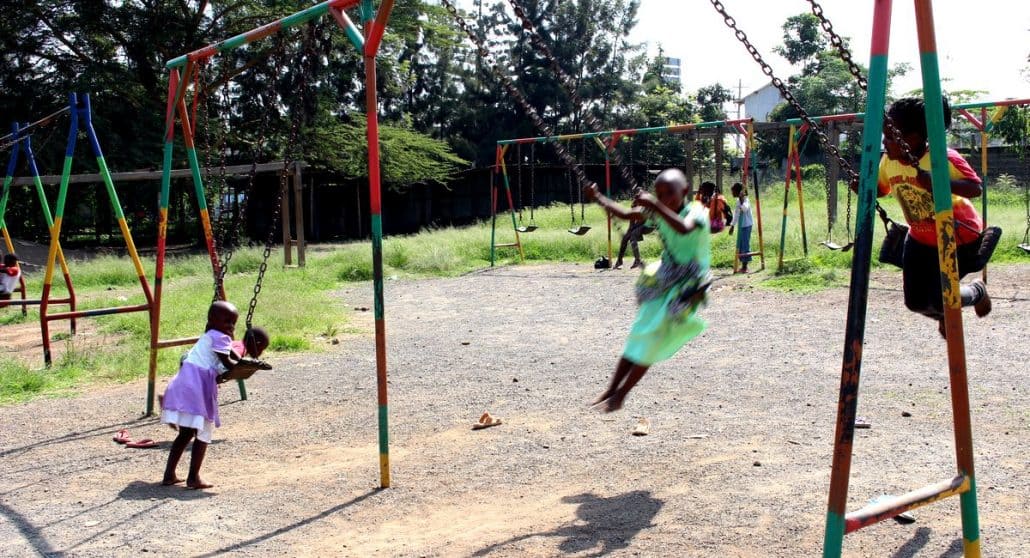By Nicky Rehbock
It was December and the school grounds were empty. Students and staff of Langata Road Primary School in Nairobi were home for the holidays, enjoying the break from lessons during the hot, sticky days.
At first no one noticed when builders moved onto the property with bricks and cement. Within two days they had built an impenetrable wall around the playground, cutting off the school buildings from the large grassy spot where students once played on the swings.
When classes reopened in mid-January, the school community was horrified to discover that the private contractors who had moved in without consent over the holidays were planning to repurpose the playground for profit.
The school is located on prime land along one of the busiest roads in Nairobi, which has attracted significant residential and commercial investment over the years. Like most schools in Kenya, Langata Road Primary is built on public land owned by the government. The agreement between school and state is an informal one largely based on goodwill as these schools don’t have title deeds.
After a dramatic stand-off between police and the school community, the hastily built wall at Langata Road was demolished and the government officially recognised the land as belonging to the school. But not all school land grabs in the country end this way.
About 78% of land in Kenya is public- and community-owned. The lack of a standard process to register land under these categories, coupled with rapid urbanisation and development, has opened up opportunities for exploitation by shady officials and developers. And as was the case with Langata Road, school land has become a soft target.
Amid increasing pressure on land and shifting land use practices, it’s vital that school land in Kenya becomes anchored in a formal tenure system.
According to a recent inquiry commissioned by Nairobi County, only six out of every 100 schools have titles to their land and one out of every 10 schools is facing a land-related dispute. This is something Transparency International Kenya is working to change by using geomapping technology to take stock of public school properties.
It’s planning to work with communities to identify and capture school property boundaries online, educate school management committees about the process of applying for a land title and offer support in tracking the title application process.
• First published on Corruption Watch Connected
• Photo © Transparency International Kenya

